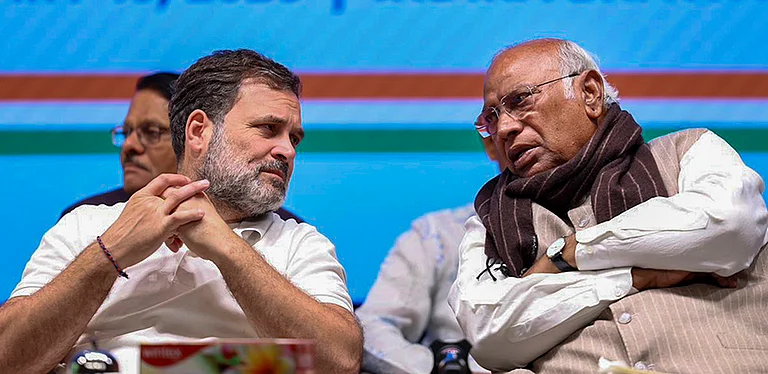Over the past few years, China has risen through the ranks to enter the top 10 education destinations for Indian students. What does the country have to offer?
Unlike many other things that the Covid-19 pandemic punctuated, students studying abroad felt its wrath more palpably as they had to make their way back and then continue their courses online. There was and continues to be a special spotlight on China, the neighbouring country in the eye of the coronavirus controversy, where many Indian students, mostly medical, were stuck when the pandemic broke out in December 2019.
Since then, the 23,000 students have returned to India but are now waiting, some even protesting, to go back to the communist country to finish their degrees. It was only in the last week of April this year that China, which had cancelled flights and visas for Indians over two years ago, offered them some respite. While Beijing has said that it will allow Indian students to go back on a ‘need-assessed’ basis, a timeline for the same has still not been set.
The ongoing tussle has also highlighted how China has risen to become one of the top 10 destinations for Indian students in the recent past.
Why China?
In July 2021, answering a question in the Rajya Sabha about the number of Indian students studying abroad, Minister of State for External Affairs V. Muraleedharan had placed the number at 11.3 lakh students, including 23,000 studying in China.
There are incentives galore for Indian students to pick China. “The universities offer scholarships for students pursuing higher studies in medicine, engineering, business studies, etc. Also, the cost of living in some cities in China is much lower when compared to other countries like the US, the UK, etc,” says Harsh Bharwani, CEO and MD of Jetking Infotrain, a computer networking institute. Students also get quality education and good work experience after completing their courses, he adds.
With the cost of quality education in India increasing significantly year after year, neighbour China is being seen as a viable option by many. Many universities in China now also offer classes in English, solving the persistent issue of language barrier.
For years now, China, the world’s factory, has dominated the field of manufacturing. High production of both capital and consumer goods, boosted by an economy that has complementary policies, has made the country a competitive market which has a constant demand for human resources.
This opens doors for students who want to work there as well. From teaching to jobs related to business, trade, IT, tech, hospitality, tourism, finance, engineering and even research and development jobs—the list of opportunities is long.
Tread With Caution
While opportunities beckon, the Indo-China geopolitical tussle is and will continue to be an issue for students looking to pursue a future in the neighbouring country.
In April this year, the University Grants Commission and the All India Council for Technical Education said that degrees from Pakistan, another geopolitical rival, will not be accepted in India henceforth. However far-fetched, such a possibility is a definite risk that students studying in China would have to take into consideration.
In a world where battles are increasingly being played out online—for instance, a ban on Chinese apps and platforms in India—Indian students looking to study in China would have to deal with an added layer of caution. With the idea of a hybrid system picking up steam and online education becoming integral to the education system across the globe, thinking of pursuing any sort of education from China would entail a certain degree of risk on that front. These, however, are worst-case scenarios.
At What Cost?
As compared to some countries in the West, China is more affordable for Indian students in terms of rent and other expenses. Even then, for a middle-income household, the average monthly living expenses in China may create a problem.
Saurabh Arora, founder & CEO of University Living, an online global student accommodation marketplace, gives Outlook Business a monthly financial snapshot of what it would look like to be a student in China. According to him, accommodation would cost them around Rs 35,000 on an average, depending on the city and accommodation type. Groceries would cost close to Rs 4,500 and while Rs 4,000 for transportation and about Rs 5,500 approximately would have to be set aside for transportation and utilities. Medical insurance would be a Rs 9,000 to Rs 10,000-dent per month.
How To Apply To Chinese Universities
While it is not very technical or confusing, there is a due process that needs to be followed to apply for colleges in China. Here is a checklist in case you, as a student or a parent, are looking at China as a prospective option —
1. Choose the right course and university that cater for all your needs. Make sure to inquire and do thorough research about the city that the university is located in as it will make a significant difference in living expenses.
2. Make sure to have a proficiency test that is acceptable in the university of your choice. Generally, it is the Test of English as a Foreign Language and the International English Language Testing System but some universities also ask their students to pass a Chinese proficiency test. Also, a valid age proof would be necessary as Chinese universities have a strict maximum age policy for their students. Read the eligibility criteria issued by the universities properly as they sometimes have special conditions that need to be fulfilled.
3. A strong recommendation portfolio from your previous educators and mentors would be helpful. Universities abroad give special weightage and significance to these recommendation letters when choosing international students—the same goes for Chinese universities.
4. In case you need additional financial help, make it a point to inquire about scholarships in your own university and their eligibility. If not, do reach out to banks and other organisations that provide education loans and scholarships.
5. Finally, make sure you complete all the passport and visa formalities through a body authorised by the Indian government so that there are no issues going forward.





















